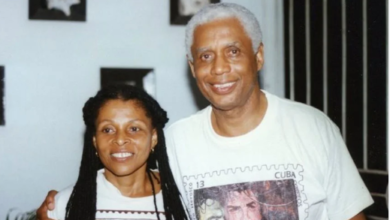Ex Husband Regret Ava: How to Handle Feelings of Regret After Divorce

Navigating feelings of regret after a divorce can be an intricate and often painful process, particularly when it involves an ex-husband. Understanding the underlying causes of this regret is vital for emotional healing, as it can illuminate the path toward personal growth. Acknowledging these feelings is just the beginning; recognizing emotional triggers and exploring healthy coping mechanisms can significantly influence your healing journey. As you reflect on your past relationship and consider your future, questions arise about how to effectively move forward. What steps can you take to reclaim your identity and foster new beginnings?
Understanding Regret After Divorce
In the aftermath of divorce, individuals often find themselves grappling with a complex tapestry of emotions, among which regret frequently looms large.
Understanding emotions is crucial during this time, as it allows for the processing of grief and the recognition of what has been lost.
Embracing these feelings can ultimately lead to healing, fostering personal growth and paving the way towards newfound freedom and self-discovery.
Common Causes of Regret
Regret often stems from a myriad of factors that can weigh heavily on the heart post-divorce.
Common causes include financial instability that disrupts your sense of security and unmet expectations regarding companionship and support.
These feelings can create a longing for what once was, making it essential to acknowledge and process these emotions as part of your journey toward healing and freedom.
Recognizing Emotional Triggers
Emotional awareness is a crucial step in navigating the complexities of life after divorce.
By engaging in trigger identification, you can pinpoint specific situations or memories that evoke feelings of regret.
Recognizing these emotional triggers allows you to respond consciously rather than reactively, empowering you to process your feelings and ultimately find a sense of freedom and healing in your new life.
Reflecting on the Relationship
While it can be painful to look back at a past relationship, engaging in thoughtful reflection is essential for understanding the dynamics that contributed to its end.
Utilizing reflection practices can help uncover valuable relationship lessons, allowing you to identify patterns and behaviors that may require change.
This process fosters personal growth, empowering you to embrace a future free from the shadows of regret.
Healthy Coping Mechanisms
Moving forward after a divorce often involves navigating a complex landscape of emotions, and finding healthy coping mechanisms is vital for healing.
Engaging in mindful meditation can help center your thoughts and promote emotional clarity, while creative expression, such as writing or art, allows you to process feelings authentically.
Embracing these practices fosters resilience and empowers you to reclaim your personal freedom.
Seeking Support From Others
Seeking support from others can be a crucial step in the healing journey after divorce. Engaging with support networks, such as friends or family, fosters understanding and shared experiences.
Additionally, professional counseling offers a safe space to explore feelings of regret and develop coping strategies. Embracing these resources empowers individuals to navigate their emotions and move toward a liberated, fulfilling future.
Rebuilding Your Identity
Rebuilding your identity after divorce can be a transformative journey, offering an opportunity to rediscover personal interests that may have been set aside.
Establishing new relationships and setting future goals can further empower you, fostering a sense of purpose and connection.
Embracing this process is essential for your emotional well-being and personal growth as you move forward.
Rediscovering Personal Interests
After a divorce, many individuals find themselves at a crossroads, often reflecting on who they are outside the confines of their previous relationship.
Embracing hobbies exploration and engaging in self-discovery activities can pave the way towards rebuilding your identity.
These pursuits not only foster personal growth but also empower you to reclaim your passions, ultimately leading to a more fulfilling and liberated life.
Establishing New Relationships
As individuals rediscover their personal interests following a divorce, the opportunity to establish new relationships becomes a vital aspect of rebuilding one’s identity.
Embracing the dating dynamics can be empowering, but it’s essential to assess emotional readiness before diving in.
Building connections with others not only fosters growth but also opens doors to new experiences, helping to create a fulfilling, independent life.
Setting Future Goals
Often overlooked in the aftermath of a divorce, setting future goals plays a crucial role in the journey of personal reinvention.
Embracing goal setting can help you rediscover your passions and aspirations.
Consider these steps to shape your future:
- Identify your core values
- Define your future aspirations
- Create actionable plans
Setting Future Goals
Setting future goals can be a transformative step in the healing process following a divorce. Engaging in goal setting allows you to redefine your future aspirations and regain a sense of purpose. Below is a simple framework to help you visualize your goals:
| Goal Type | Description |
|---|---|
| Personal Growth | Focus on self-improvement |
| Career Objectives | Define professional ambitions |
| Relationship Goals | Cultivate healthy connections |
| Health & Wellness | Prioritize physical and mental health |
| Financial Planning | Strategize for financial security |
Embracing Forgiveness and Closure
Achieving personal growth and outlining future objectives can pave the way for emotional healing, but an equally important aspect of moving forward is the process of embracing forgiveness and finding closure.
- Explore forgiveness practices, such as journaling and meditation.
- Implement closure techniques, like rituals to signify the end of a chapter.
- Seek support from friends or professionals to navigate these emotions.
Conclusion
In the intricate tapestry of life, feelings of regret after divorce can weave a complex pattern of emotions that require thoughtful navigation. Acknowledging and understanding these feelings paves the way for healing and growth. By employing healthy coping mechanisms, seeking support, and setting new goals, individuals can transform regret into a catalyst for personal development. Ultimately, embracing forgiveness and closure creates space for renewed hope and the opportunity to build a more fulfilling future.





